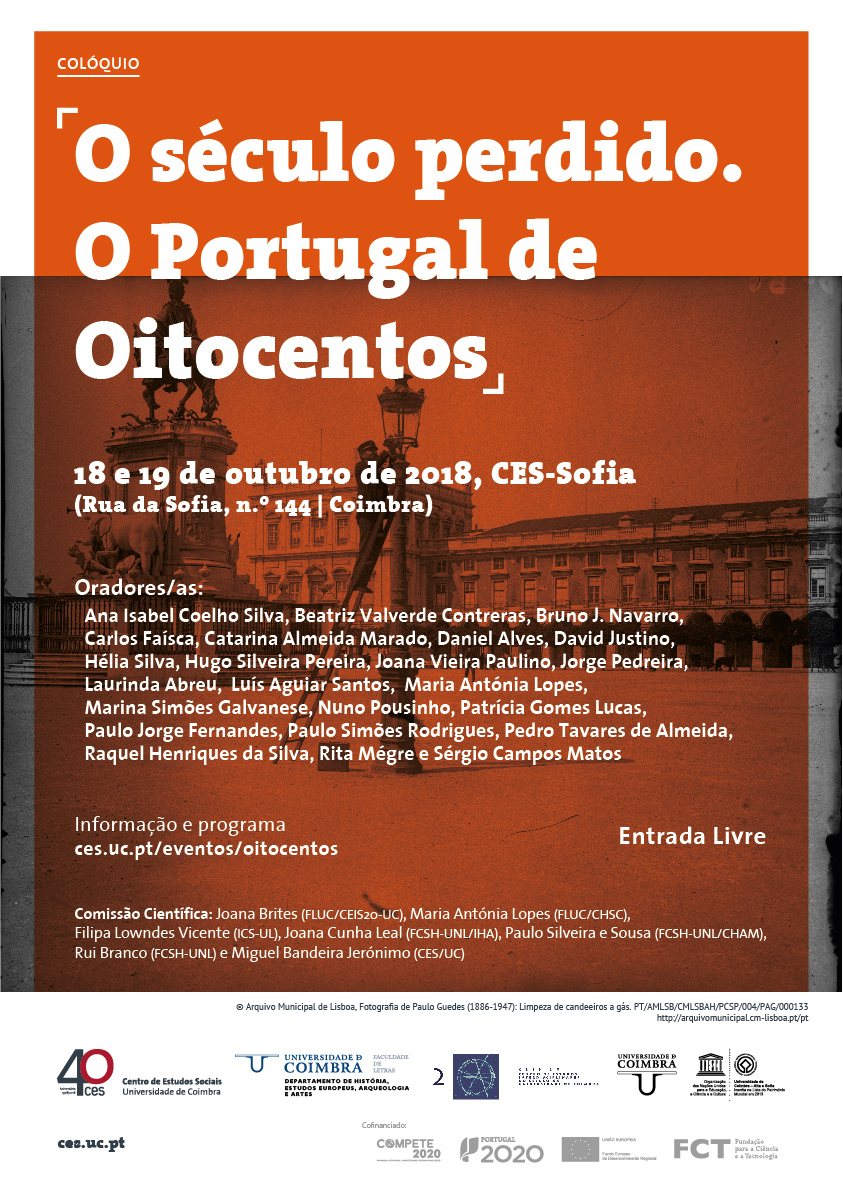Colóquio
O século perdido. O Portugal de Oitocentos
18 e 19 de outubro de 2018
Sala de Seminários (Piso 2), CES | Sofia (Coimbra)
Enquadramento
Nos últimos anos, em parte em consequência dos estudos históricos sobre a globalização (e sua periodização) e de uma série de reflexões de natureza historiográfica e metodológica associadas à história global e transnacional, o longo século XIX voltou a ser avaliado de modo crítico. Ganhou, de novo e em muitos sentidos, o direito a ser pensado como um período histórico fundamental em sim mesmo, não como um epifenómeno, um ponto de passagem, um mero depois ou um antes de qualquer momento mais significativo, da revolução francesa à Primeira Guerra Mundial. Estas tendências de relativa desvalorização historiográfica são claramente notórias no que diz respeito ao caso dos oitocentos em Portugal. É, em muitos sentidos, um século perdido, por reencontrar e redefinir. Ora é tomado como um corolário da desagregação do antigo regime, processo no qual a desintegração do império brasileiro constitui um episódio decisivo, ora é perspectivado como uma mera antecâmara do atribulado século XX e as suas três grandes revoluções sociais. Esta conferência pretende questionar os fundamentos destas asserções e reflectir sobre o estado do conhecimento sobre o século XIX português, a partir de uma perspectiva multifacetada, favorecendo temas heterogéneos e convocando diversos enfoques teóricos e metodológicos, inclusive os comparativos.
Entre os tópicos que articulam o desafio de discutir o século XIX português, e que o colóquio tratará, incluem-se os seguintes:
- Do século “perdido” ao século “obrigatório”: contributos de ordem teórica e metodológica
- Portugal no mundo e o mundo em Portugal
- O factor imperial: dinâmicas e consequências
- Disciplinar e regular: a racionalização da prática governamental
- As ordens da desordem: revoltas e movimentos sociais
- Os géneros de oitocentos: as políticas da desigualdade
- Tradição e modernidade: tensão e compromisso
- 1820-2020: balanço crítico sobre o liberalismo oitocentista
Orgs. Joana Brites (CEIS20/UC) e Miguel Bandeira Jerónimo (CES/UC)
[CES-Sofia > LOCALIZAÇÃO]


